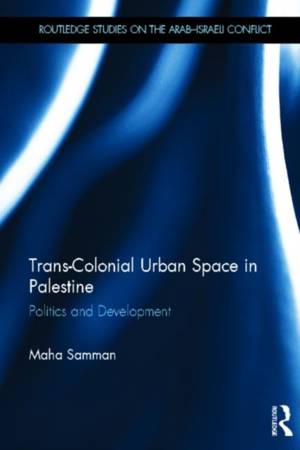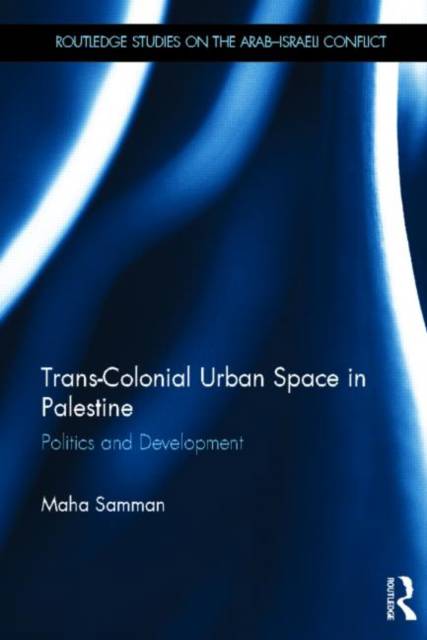
- Afhalen na 1 uur in een winkel met voorraad
- Gratis thuislevering in België vanaf € 30
- Ruim aanbod met 7 miljoen producten
- Afhalen na 1 uur in een winkel met voorraad
- Gratis thuislevering in België vanaf € 30
- Ruim aanbod met 7 miljoen producten
Omschrijving
Taking a multidisciplinary approach to examine the dynamics of ethno-national contestation and colonialism in Israel/Palestine, this book investigates the approaches for dealing with the colonial and post-colonial urban space, resituating them within the various theoretical frameworks in colonial urban studies.
The book uses Henry Lefebvre's three constituents of space - perceived, conceived and lived - to analyse past and present colonial cases interactively with time. It mixes the non-temporal conceptual framework of analysis of colonialism using literature of previous colonial cases with the inter-temporal abstract Lefebvrian concepts of space to produce an inter-temporal re-reading of them. Israeli colonialism in the occupied areas of 1967, its contractions from Sinai and Gaza, and the implications on the West Bank are analysed in detail.
By illustrating the transformations in colonial urban space at different temporal stages, a new phase is proposed - the trans-colonial. This provides a conceptual means to avoid the pitfalls of neo-colonial and post-colonial influences experienced in previous cases, and the book goes on to highlight the implications of such a phase on the Palestinians. It is an important contribution to studies on Middle East Politics and Urban Geography.
Specificaties
Betrokkenen
- Auteur(s):
- Uitgeverij:
Inhoud
- Aantal bladzijden:
- 336
- Taal:
- Engels
- Reeks:
Eigenschappen
- Productcode (EAN):
- 9780415677325
- Verschijningsdatum:
- 26/11/2012
- Uitvoering:
- Hardcover
- Formaat:
- Genaaid
- Afmetingen:
- 157 mm x 236 mm
- Gewicht:
- 612 g

Alleen bij Standaard Boekhandel
Beoordelingen
We publiceren alleen reviews die voldoen aan de voorwaarden voor reviews. Bekijk onze voorwaarden voor reviews.











